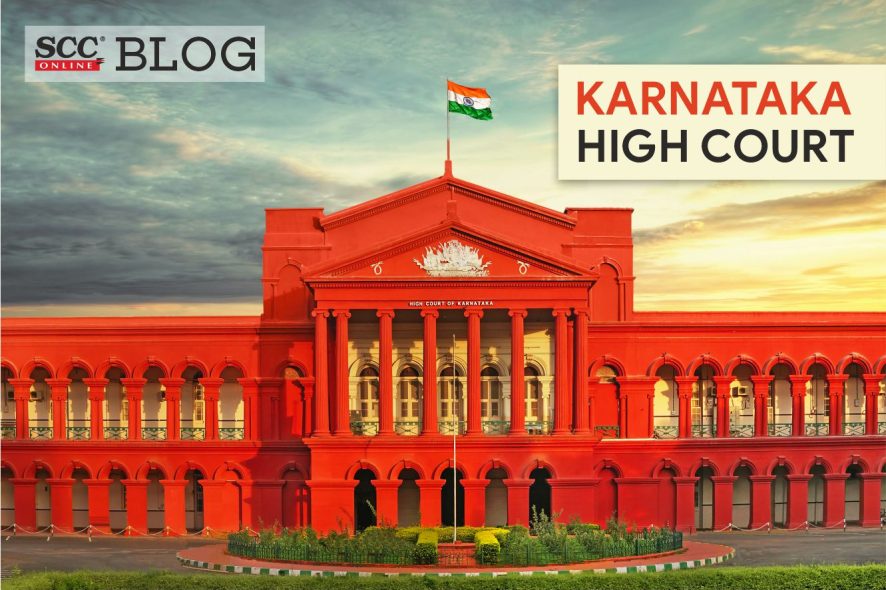Karnataka High Court: While deciding the instant appeal wherein the issue was whether the liability of the Insurance Company is absolved in cases where the driver of an insured vehicle had died due to heart attack when such insured vehicle was not in use at the time of his death; the Bench of H.P Sandesh, J., observed that usage of vehicle does not mean that at the time of his death, the driver was necessarily driving the vehicle. Since in casual connection of his employment, the driver was sleeping in the lorry and while taking a rest, suffered a heart attack, therefore this scenario would not absolve the Insurance Company from paying the compensation.
Facts of the Case: The deceased Eranna was working as a lorry driver with the respondent. In order to take some rest, he halted his vehicle near Idya village. It while taking rest that Eranna died due to cardiac arrest.
Eranna’s legal representatives laid a claim before the Workmen’s Commissioner. The vehicle’s owner admitted to Eranna’s employment and to the fact that he died due to cardiac failure during the course of employment. The insurance company contested the claim and contended that Eranna’s death was not an accidental death and since he was taking intoxicating drugs, hence, the Insurance Company is not liable to pay the compensation as the same is not covered under the policy.
Upon examining the claims, the Commissioner allowed the same and directed the Insurance Company to pay compensation of Rs. 3,03,620 with 12% interest. Aggrieved with the Award, the Insurance Company preferred the instant appeal.
Contentions: The counsels for the Insurance Company submitted that Eranna’s death is due to cardiac failure and the same is not a ground of usage of vehicle and the Commissioner was not justified in saddling liability on the insurer.
It was further submitted that there were complaints lodged against the deceased stating that he was in the habit of indulging in intoxication every day and since the deceased was a habitual drinker, there is no liability on the employer to pay the compensation and there must be a causal connection between the death and the use of vehicle.
Per- contra, the claimants presented the deceased’s post-mortem report which revealed that the deceased drove a tipper lorry, which is heavy vehicle and operating such vehicles are stress and heart attack inducing. It was contended that stress was the very nature of the deceased’s employment. The respondents also pointed out that the vehicle owner had not been examined.
Observations and Decision-
-
Upon perusal of the facts and contentions, the Court observed that the deceased’s employment and his death by heart attack is not in dispute; and neither there is a dispute as to the fact that the deceased had parked his vehicle and was resting.
-
The Court observed that the core question in the dispute is related to the exoneration of the Insurance Company’s liability on ground of the vehicle’s non-usage during the time of death.
-
The Court noted that the vehicle owner (the insured) had already admitted that Eranna had died during the course of employment, thus Insurance Company now cannot dispute that the death occurred during the course of employment. The Court also noted the Commissioner’s findings regarding the high degree of stress involved while driving a tipper lorry.
-
Regarding the non-usage of the tipper lorry during the time of death, the Court pointed out that it is not necessary that the vehicle must be in usage at the time of death and the Court must take note of casual connection with employment and death and the policy taken to cover the risk of the driver. The Court also rejected the contention of the Insurance Company that since Eranna’s died a natural death, the Company does not have any liability to pay compensation. The claims of Eranna’s alleged habitual alcoholism were also rejected by the Court, as no material was presented in this regard.
-
Finally, the Court noted that Eranna died while sleeping in the vehicle itself and the fact that he was working on the day of his death. Furthermore, the Court pointed out that the Insurance Company failed to place any relevant material before the Court that may have revealed that there was no casual connection with cause of death and his employment.
-
With the afore-stated observations, the Court held that the Insurance Company cannot be exonerated with the liability to pay compensation and dismissed the appeal.
[The Divisional Manager v. Shankaramma, 2022 SCC OnLine Kar 1528, decided on 09-09-2022]
Advocates who appeared in this case :
S. K. Kayakamath, Advocate, for the Appellants;
Shivakumar S. Badawadagi, Advocate, for the Respondents.
*Sucheta Sarkar, Editorial Assistant has reported this brief.






